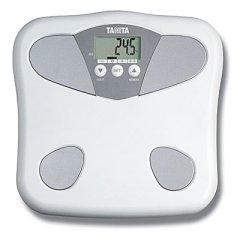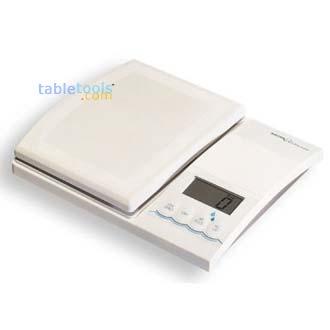|
Deafheaven's Personal Journey |
|
Chapter IV: The Dreaded Scale
I have been on both sides of the scale issue. Some folks say to not weigh yourself more than once per week
because not seeing what you want to see may discourage you to the point where you give up. For myself, weighing in at over 400 lbs, I has made a commitment to myself to adhere strictly to my new
WOL (way of life). To this end I had decided there was no need to weigh myself. I would let the weight take care of itself.
As long as I stuck to plan then the weight would have to come off, however slowly right? Right? Wrong! Making adjustments is one of the keys to weightloss. As you lose weight, your BMR drops. I cannot eat the
same at my current 195 lbs as I could at 400 lbs and still expect to lose weight. My question becomes "how are you going to
know if what you are doing is working if you are not going to weigh yourself?" Now I will say this... do not take every single reading on your scale to heart every single day. Watch
for trends. Always take your readings at the same time of day every day, record it, and then look for trends. The reason I want you to consider a scale that also registers body fat is that it is just one more source
of information with which to gauge your progress. Now getting an accurate reading of body fat percentage is a difficult thing
and these scales will not, in my opinion, produce a really accurate number for you HOWEVER the reading does not need
to be that precise. What you are monitoring are the trends. If my body fat has dropped to 17 from 20 then I know I'm going
in the right direction. The other advantage is that I have discovered that during times where I am retaining water, and therefore
not seeing the scale budge, my body fat reading will drop due to the increase in water in my body. This puts my mind at ease
when the scale is not moving. One of the more popular models of this type scale are the Tanita brand but there are several different
types out there. I would encourage you to shop around for the best features and price in your area. Another important scale is the kitchen scale. If you can afford it, I recommend you purchase a good quality
digital kitchen scale. The one I purchased is a Salter Electronic Aquatronic. This scale incorporates a weighing system which
will measure water based liquids such as milk, wine or cream. The neat thing is you can add and weigh your baking ingredients
into a single bowl without using a measuring cup. For example... place bowl on scale and set to zero, add flour and it weighs
it, set back to zero, add oil and it weighs it and so on and so on. This particular scale also measures in both grams and
ounces.
|
||||
|
|

